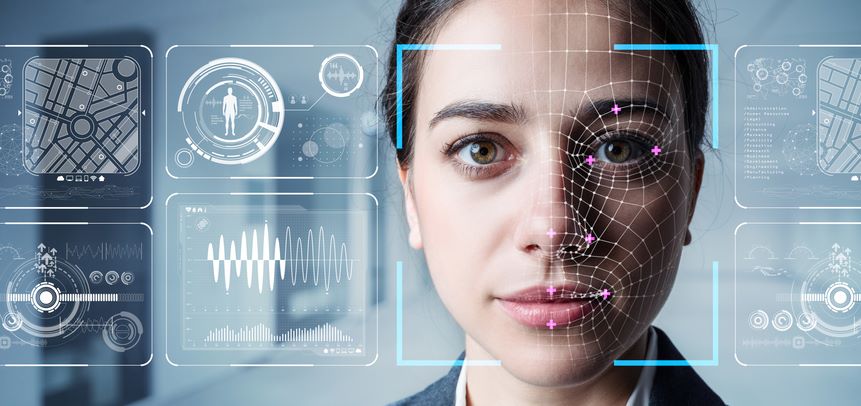
In recent years, facial recognition technology has been hailed as a breakthrough in crime prevention and law enforcement. However, it has also raised significant concerns about privacy, accuracy, and potential misuse.
One of the most alarming issues is the possibility of false arrests based on faulty facial recognition matches. This can be from the driver’s license or other documents as well. However, if you’re accused falsely, strategic litigation can be a major tool.
This article delves into the complexities of facial recognition false arrests, explores real-world examples, and offers guidance for those affected by such situations.
What is Facial Recognition False Arrest and Can It Be Wrong?
Facial recognition false arrest occurs when an individual is wrongfully detained or arrested based on erroneous matches generated by facial recognition software. This technology, while powerful, is not infallible. Errors in identification can lead to severe consequences for those falsely accused.
Yes, facial recognition can be wrong. Despite advances in artificial intelligence, facial recognition software can misidentify individuals due to various factors such as poor image quality, algorithmic biases, and similarities in facial features.
Studies have shown that facial recognition technology is more likely to misidentify people of color, leading to a higher risk of wrongful arrests among these communities.

How Does Facial Recognition Go Wrong?
Facial recognition technology can fail in several ways:
- Algorithmic Bias: Facial recognition algorithms have been found to be less accurate in identifying people of color. This bias can result in a disproportionate number of wrongful arrests among these groups.
- Poor Image Quality: Low-resolution images or images taken from unfavorable angles can lead to incorrect matches.
- Similar Facial Features: People with similar facial features can be mistakenly identified as the same person by the software.
Elements of a Facial Recognition False Arrest Lawsuit
When a wrongful arrest occurs due to facial recognition errors, victims may seek legal recourse through a facial recognition false arrest lawsuit. Key elements of such a lawsuit include:
- False Arrest: The plaintiff must demonstrate that they were detained without probable cause, based solely on an erroneous facial recognition match.
- Negligence or Malpractice: The plaintiff must prove that law enforcement officers or the agency were negligent in relying on faulty technology without adequate verification.
- Damages: The plaintiff must show that the false arrest caused them harm, including physical, emotional, and financial damages.
The Impact of Facial Recognition False Arrest
A false arrest due to facial recognition technology can have far-reaching impacts on the individual affected:
- Emotional Trauma: Being wrongfully detained can lead to significant emotional distress, anxiety, and trauma.
- Reputational Damage: A false arrest can tarnish an individual’s reputation, affecting their personal and professional relationships.
- Financial Loss: Legal fees, lost wages, and other financial burdens can accumulate as a result of a wrongful arrest.
- Long-Term Consequences: In some cases, a false arrest can have lasting effects on an individual’s criminal record and future opportunities.
How to Protect Yourself in a Facial Recognition False Arrest Lawsuit
If you believe you have been wrongfully arrested due to a faulty facial recognition match, it is crucial to take the following steps:
- Gather Evidence: Collect all possible evidence, including arrest records, photographs, and any communication with law enforcement.
- Seek Legal Counsel: Contact an experienced attorney who specializes in wrongful arrests and facial recognition technology.
- File a Complaint: File a formal complaint with the relevant police department and any oversight bodies.
- Public Awareness: Raise public awareness about your case to highlight the potential flaws in facial recognition technology.

What is the Lawsuit About Facial Recognition False Arrest?
A lawsuit regarding facial recognition false arrest centers on the wrongful detention of an individual based on incorrect facial recognition matches. Plaintiffs argue that law enforcement agencies, through their use of flawed technology, have violated their rights. These lawsuits seek to hold agencies accountable and push for changes in the use of facial recognition software.
Is Facial Recognition False Arrest Against the Law?
False arrests, including those resulting from erroneous facial recognition matches, are against the law. The Fourth Amendment to the U.S. Constitution protects individuals from unreasonable searches and seizures, which includes wrongful detentions without probable cause. Victims of facial recognition false arrests may have grounds to file a lawsuit against the responsible police departments and officers.
Is False Arrest a Crime?
False arrest is not a crime per se, but it is a violation of civil rights. It can lead to civil lawsuits where the victim seeks compensation for damages. In some instances, it may also involve claims of malicious prosecution if the false arrest without arrest warrant led to unwarranted legal proceedings.
Liability in Facial Recognition False Arrest Lawsuits
Liability in facial recognition false arrest lawsuits can extend to multiple parties:
- Law Enforcement Agencies: Agencies may be held accountable for implementing and relying on flawed facial recognition software without proper verification processes.
- Facial Recognition Software Providers: Companies that develop and supply facial recognition technology may also be liable if their software is proven to be faulty or biased.
- Individual Officers: In some cases, individual officers may be held personally responsible if they acted negligently or maliciously in making the arrest.
Can You Sue for Facial Recognition False Arrest?
Yes, you can sue for facial recognition false arrest. Victims of wrongful arrests due to faulty facial recognition matches have the right to seek compensation for the harm suffered. This can include emotional distress, financial losses, and reputational damage.
When Can You Sue for Facial Recognition False Arrest?
You can sue when you can demonstrate that:
- You were arrested based on a facial recognition match.
- The match was incorrect.
- The arrest led to damages such as loss of liberty, emotional distress, or financial loss.
How to File a Facial Recognition False Arrest Lawsuit
Filing a lawsuit involves several steps:
- Consult an Attorney: Find a lawyer with expertise in wrongful arrests and facial recognition technology.
- Collect Evidence: Gather all relevant documents, including arrest records, identification documents, and communication with law enforcement.
- File the Complaint: Your attorney will file a complaint in the appropriate court, outlining the wrongful arrest and the damages suffered.
- Litigate: The case will proceed through the legal system, where both sides present evidence and arguments.
Proving Your False Arrest Claim
To prove your claim, you must show that:
- The arrest was made based on a facial recognition match.
- The match was inaccurate.
- You suffered damages as a result of the lawsuit filed.
The Role of Advocacy Organizations
Organizations like the American Civil Liberties Union (ACLU) play a crucial role in advocating for the responsible use of facial recognition technology and protecting individuals’ rights. The ACLU has been at the forefront of legal challenges and policy advocacy, pushing for greater transparency and accountability in law enforcement’s use of this technology.
Damages and Other Remedies in a Facial Recognition False Arrest Case
Victims of false arrest can seek various types of damages, including:
- Compensatory Damages: For financial losses, emotional distress, and reputational harm.
- Punitive Damages: To punish the responsible parties and deter future misconduct.
- Injunctive Relief: To prevent further use of faulty facial recognition technology by the involved agencies.
Real-World Examples of Facial Recognition False Arrests
Several high-profile cases highlight the risks associated with facial recognition technology:
- Randal Quran Reid: A Michigan resident, Reid was wrongfully arrested by the Jefferson Parish police due to a mistaken facial recognition match. Despite his innocence, he was detained for nearly a week before the prosecutor dismissed the charges.
- Harvey Murphy Jr.: In Houston, Murphy was wrongfully accused of a crime he did not commit based on faulty facial recognition software used by the houston police. The software tried to identify Murphy as the perpetrator but was wrong.
- Detroit Police Cases: Multiple incidents where Detroit police arrested individuals based on faulty facial recognition matches, leading to calls for reform.
How an Attorney Can Help You in a Facial Recognition False Arrest Case
Dealing with the complexities of a facial recognition false arrest case can be daunting without professional legal guidance. An experienced attorney can provide invaluable assistance in numerous ways, ensuring that your rights are protected and that you have the best possible chance of obtaining justice and compensation. Here’s how an attorney can help you in such a case:
- Expert Legal Advice and Guidance: Attorneys offer tailored legal advice, guiding you through the complexities of your case and helping you understand the best course of action to take.
- Thorough Investigation: Attorneys conduct detailed investigations, gathering evidence, reviewing reports, and interviewing witnesses to build a strong case on your behalf.
- Identifying Missteps and Violations: Attorneys pinpoint procedural errors or violations of your rights, such as lack of probable cause, strengthening your defense against wrongful arrest.
- Challenging Facial Recognition Evidence: Attorneys challenge the reliability of facial recognition software, presenting expert testimony to highlight flaws and biases in the technology.
- Building a Strong Legal Argument: Attorneys craft compelling legal arguments, supported by evidence, to demonstrate your wrongful arrest and the resulting damages.
- Handling Legal Procedures and Paperwork: Attorneys manage all legal paperwork and procedural requirements, ensuring your case progresses smoothly through the court system.
- Negotiating Settlements: Attorneys negotiate with opposing parties to secure fair settlements, avoiding the need for lengthy and costly trials.
- Representation in Court: Attorneys advocate for you in court, presenting your case to the judge and jury and making persuasive arguments on your behalf.
- Seeking Appropriate Damages: Attorneys pursue compensation for your damages, including emotional distress and financial losses, through legal avenues.
- Protecting Your Rights: Attorneys ensure your rights are protected throughout the legal process, advocating for fair treatment and due process.

Take Legal Action Against Facial Recognition False Arrests with BLG
Facial recognition technology, while promising, is far from perfect. Its use by law enforcement agencies has led to several wrongful arrests, causing significant harm to innocent individuals. If you find yourself a victim of such a situation, it is essential to understand your rights and seek legal assistance.
With the right legal guidance, you can challenge the wrongful arrest, seek compensation, and advocate for changes to prevent future injustices. Remember, no technology is above scrutiny, and protecting your civil liberties is paramount.
Don’t hesitate to seek legal guidance if you or a loved one get arrested wrongfully due to facial recognition technology, . Contact BLG today and let our experienced attorneys fight for your rights. We specialize in cases involving facial recognition false arrests and can provide you with the legal guidance and representation you need.
Contact us today for a free consultation.
FAQs
Can you sue for wrongful arrest in the USA?
Yes, individuals can sue for wrongful arrest in the USA. However, victims can do this if the action doesn’t have a probable cause or unlawful .
What is an example of a false arrest?
An example of a false arrest is when law enforcement officers detain someone without legal justification, such as arresting someone based on mistaken identity or without evidence of wrongdoing.
What makes an arrest invalid?
An arrest may be invalid if it lacks probable cause, meaning there is not enough evidence or reasonable suspicion to justify the arrest. Other factors such as improper procedures or violations of constitutional rights can also render an arrest invalid.




